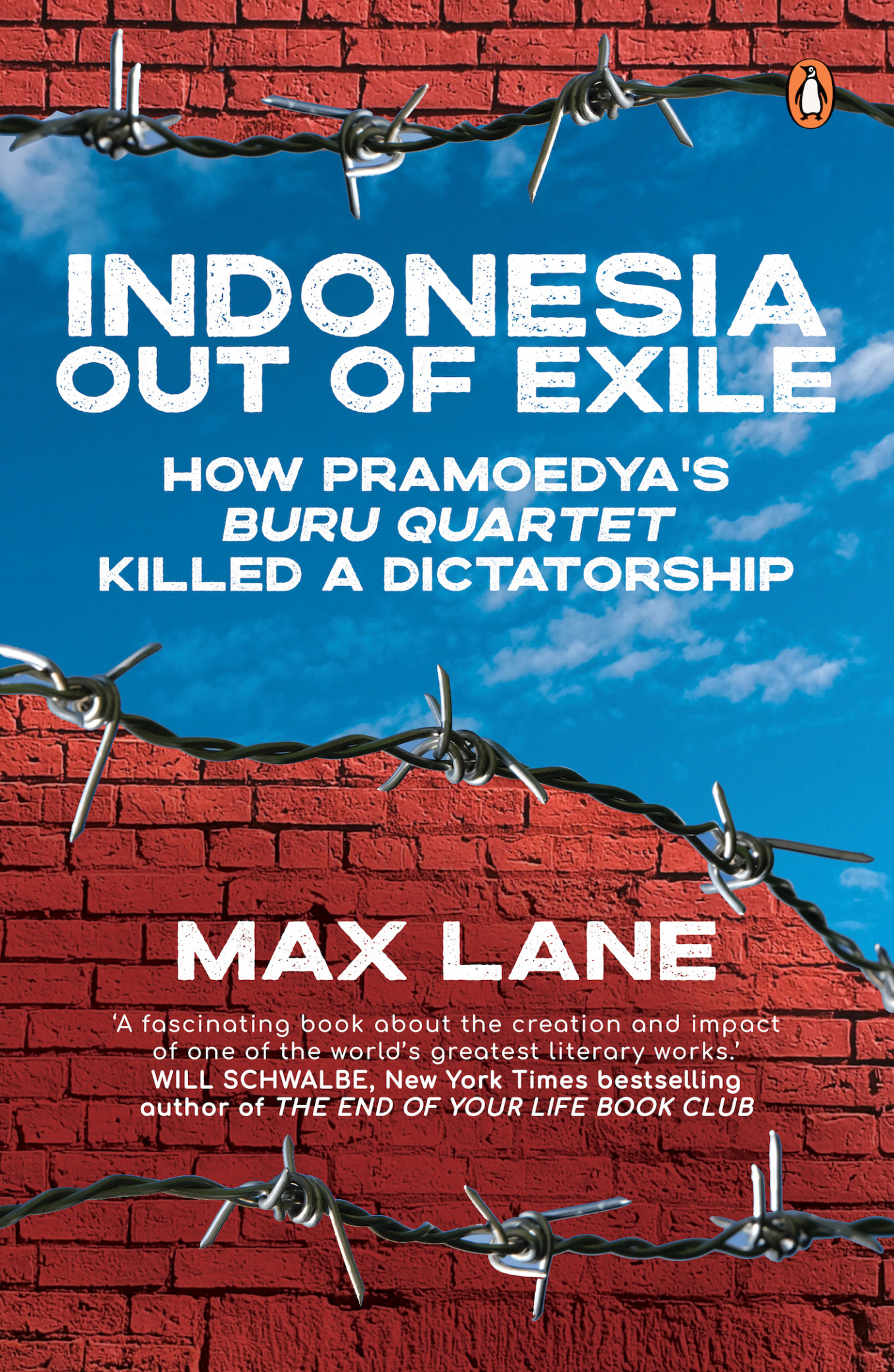Popular Reads
Top Results
Can't find what you're looking for?
View all search resultsPopular Reads
Top Results
Can't find what you're looking for?
View all search resultsUnderstanding the impact of Pramoedya’s 'Buru Quartet'
Change text size
Gift Premium Articles
to Anyone
L
eading Australian expert on Indonesia Max Lane recounts late Indonesian literary giant Pramoedya Ananta Toer’s role in inspiring the downfall of former president Soeharto’s New Order regime through his Buru Quartet tetralogy
One man come in the name of love
One man come and go
One man come he to justify
One man to overthrow
The opening lyrics to “Pride (in the Name of Love)”, U2’s tribute to martyred United States civil rights activist Martin Luther King, are equally apt for Pramoedya. The 1995 Ramon Magsaysay Award for Journalism, Literature and Creative, Communication Arts recipient has cemented his place in Indonesian history through his books, which inspired the Reform movement that ended then-president Soeharto’s 32-year rule in 1998, and other forms of activism since.
Pramoedya’s feat of writing them from memory as a political prisoner in the Buru Island penal colony between 1965 and 1979, then smuggling them to the outside world through religious texts and visitors to the island, is well-known. His refusal to be silenced, his arrest as a leading member of the Indonesian Communist Party-affiliated Lekra (Institute for the People’s Culture) after the 1965 coup attempt, and the purge that killed some 500,000 people in its wake furthered his legendary status.
Lane chronicles the writer’s struggles through his book Indonesia Out of Exile: How Pramoedya’s Buru Quartet Killed a Dictatorship. The tome also covers the roles of Pramoedya’s fellow political prisoners, newspaper publisher Hasjim Rahman and journalist Joesoef Isak, in the stormy inception of the Buru Quartet by publishing the books in defiance of a government ban in 1981 through their Hasta Mitra (Hands of Friendship) publishing company.
A lasting impression
The novels trace the development of Minke, a scion of a minor Javanese noble house who has been educated in an elite Dutch colonial high school and hopes to use his progressive European education to make a difference. Inspired by early 20th-century Indonesian journalist Tirto Adhi Soerjo, the tetralogy traces his gradual disillusionment and shaping of his Indonesian identity. Minke’s encounters shape the latter with Nyai Ontosoroh, the Dutch concubine who overcomes her status, and his love for her daughter Annelies, whom she marries off to Minke in defiance of Dutch colonial laws. Minke’s epiphany continues to inspire university students, labor unions and other activists since its publication, though the Buru Quartet tetralogy continues to be left off the literature curriculum of Indonesian schools to this day.
Lane wrote Indonesia Out of Exile as an omniscient narrator, even as he recollected translating the novels, starting with Bumi Manusia (This Earth of Mankind) and its sequels Anak Semua Bangsa (Child of All Nations), Jejak Langkah (Footsteps) and Rumah Kaca (Glass House) during his tenure as a second secretary at the Australian Embassy in Jakarta in 1981.
As the first translations of the books in English, they played a role in spreading awareness of the Buru Quartet to the broader world. They prompted the Australian Embassy to recall Lane to avoid tensions with the Soeharto government. Penguin Australia published the translated editions in 1982. Since then, Bumi Manusia and its sequels have been published in 33 countries in dozens of languages.
Art imitating life
“It was in my meetings with Pram[oedya] and Hasjim and Joesoef during 1980 and 1981 […] when I first heard all the stories of [the former’s imprisonment] in Buru Island prison camp and [the latter’s incarceration] in Salemba prison,” wrote Lane on meeting them following their release from prison the year before. He noted that prison life for the three men reflected the reality of the Indonesia Soeharto ruled over, in that “corruption was one fundamental feature of the Buru Camp regime, violence was the other. While many [prisoners] died of starvation and disease [particularly] in the first years, others were killed, tortured, or beaten.”
Lane asserted that Soeharto’s use of penal colonies or gulags like Buru to quash dissent might be similar to the Dutch colonial administration. But he noted that the former did so “on a bigger scale,” as he sought to silence and discredit visions of Indonesia, such as Pramoedya’s, which were as progressive as Soeharto’s was reactionary.
“Pramoedya’s history [in the Buru Quartet] challenges […] the New Order hegemony that Indonesia is essentially a modern manifestation of an ancient essence that is symbolized by tradition,” as the regime’s oppression was a “pre-modern despotic tradition [that] has been modernized within a framework of modern underdeveloped capitalism,” Lane writes in his direct if didactic style. This contrasts with Pramoedya’s visionary perception that “Indonesia would be a rejection of [its] past [as] it was going to be something new.” A country that “is a child of all nations […] born out of a struggle against injustice and […] in defense of principles,” which is in line with early 20th-century Indonesian visionaries like pioneering feminist Kartini or Tirto.
Lane justifiably laments the continued absence of the Buru Quartet from Indonesian schools and universities, and he feels the Indonesian public sticks to the simpler view that “Batik and dangdut and sinetron melodramas are more often perceived as the essence of Indonesian culture […] than anything that came out of the process of creating Indonesia,” including the tetralogy or Pramoedya’s other works like Arok Dedes or Arus Balik (The Flow Reverses). He also has yet to find how Pramoedya’s books can get into the psyche of Indonesian youth, or Indonesians of any age for that matter, who are currently more engaged in social media, the internet and other modern technology.
But regardless of whether the Buru Quartet faces challenges from government censorship or fickle public trends, as long as there are Indonesian or foreign readers keen to have in-depth knowledge about a banished vision of the country that came back from the backwater of exile, the books are bound to stay in the public eye.
Indonesia Out of Exile: How Pramoedya’s Buru Quartet Killed a Dictatorship
By Max Lane
223 pages, paperback
Penguin Random House SEA, 2022
Website: penguin.sg











